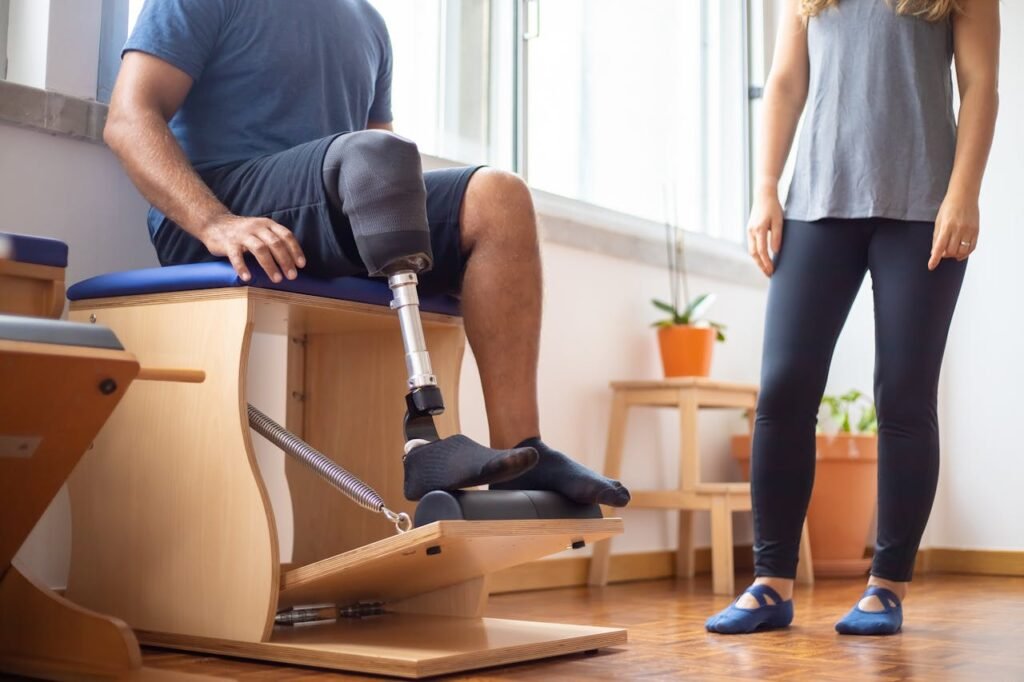If you’re trying to choose between Mumbai and Pune for getting a prosthetic fitted, you’re not alone.
Many people ask this question—especially those living in Maharashtra or nearby states. Both cities have good medical services, but they offer very different experiences when it comes to prosthetic care.
This guide will help you understand the pros and cons of each city. We’ll look at everything—from types of prosthetics available, quality of rehab, cost, travel, stay options, to after-care support.
By the end, you’ll know which city fits your needs best.
Medical Infrastructure: Comparing the Two Cities
Hospital Availability and Specialization
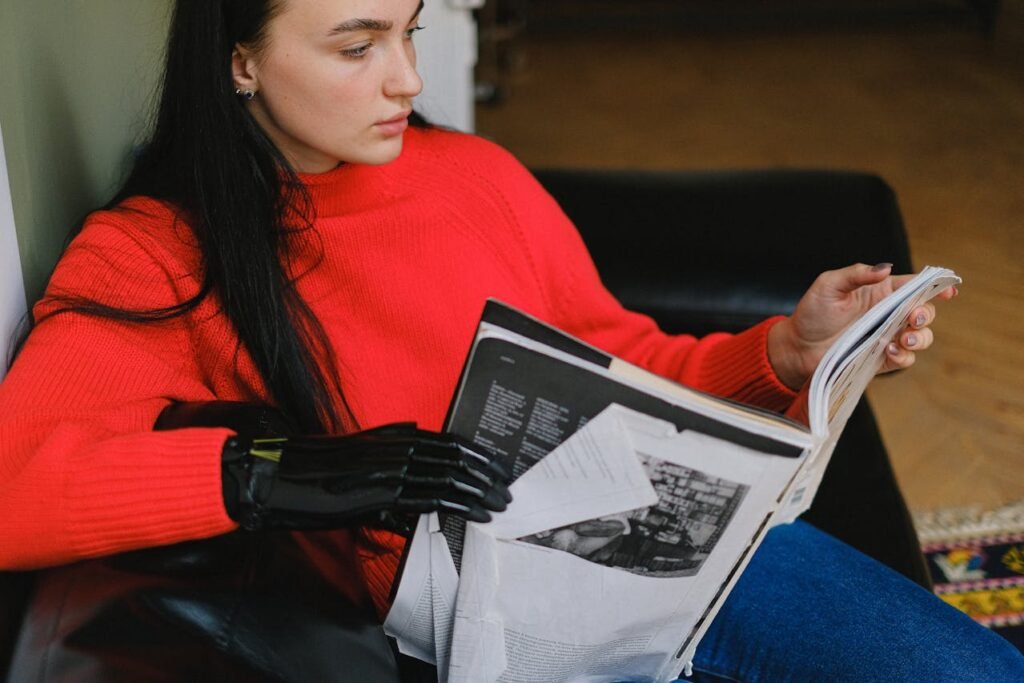
Mumbai is home to some of India’s biggest hospitals—Tata Memorial, Lilavati, Kokilaben, and KEM. These institutions offer access to high-end technology, multidisciplinary teams, and experienced prosthetic specialists.
You can find clinics that provide everything from basic artificial limbs to advanced myoelectric solutions. The volume of cases handled here also means more experience in complex prosthetic fittings.
Pune, on the other hand, is smaller but growing quickly. Hospitals like Sancheti, Deenanath Mangeshkar, and Ruby Hall are known for their orthopedic and rehab departments. While it may not have the sheer scale of Mumbai, Pune often offers faster appointments and less crowded facilities.
Waiting Time and Ease of Access
In Mumbai, getting a consultation at a top hospital may take days or even weeks. The patient load is very high, and walk-ins are rare. You’ll likely need a prior appointment for each step—from consultation to measurement to fitting.
In Pune, things tend to move faster. You can often meet a specialist the same week. Smaller crowds mean more personal attention and better coordination between departments.
If time is a priority, Pune may offer a smoother and quicker journey.
Cost of Prosthetic Fitting: What to Expect
Cost Breakdown in Mumbai
Mumbai has a wider range of services, but this comes at a price. Premium clinics often charge more for fittings, training, and follow-ups.
The cost of a basic mechanical limb can start from ₹80,000 and go up to ₹1.5 lakh. For a bionic hand like Grippy™, costs can range between ₹2.5 to ₹3.5 lakh depending on socket customization and training sessions.
Additional expenses such as follow-up visits, transportation, and accommodation can make the total bill higher.
Pune’s Pricing Advantage
In Pune, the same prosthetic services are often priced 10–15% lower.
Smaller clinic overheads and less expensive real estate allow providers to offer more competitive packages. If you’re opting for a Grippy™ fitting in Pune, the pricing is more or less standard, but the add-on costs—stay, food, transport—are significantly lower.
This can make a real difference, especially for families traveling from other states or planning for multiple visits.
Financial Support and EMI Options
Both cities have clinics that offer EMI payment options, but awareness is higher in Pune. Many private centers explain the cost in advance and help patients access government or CSR-based funding if they qualify.
Mumbai clinics often expect patients to come with financial clarity. You may have to do more research on your own to find discounts or schemes.
If affordability is a top concern, Pune may be more supportive during the process.
Type and Range of Prosthetics Available
Technology Access in Mumbai
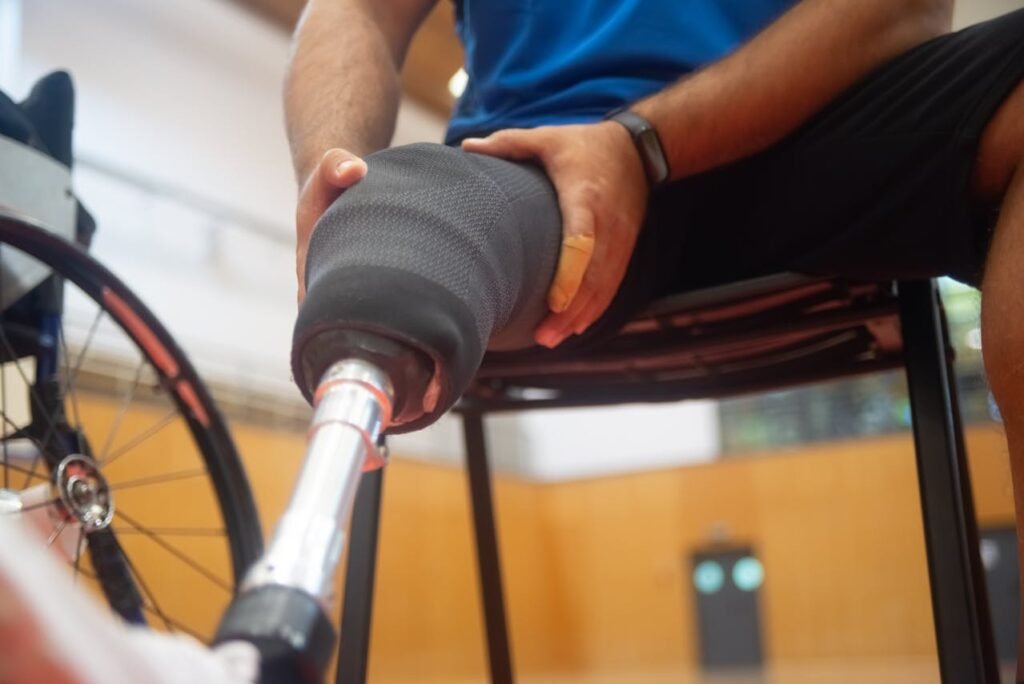
Mumbai is often first in line when new prosthetic technologies are introduced in India. You’ll find providers who offer imported limbs, custom-built solutions, and full-scale robotic arms.
This gives you more variety—but also more complexity. You’ll need to spend time comparing models, trialing devices, and reviewing warranties and support terms.
Clinics that offer Grippy™ in Mumbai tend to serve professionals, students, and athletes who are looking for top-tier performance.
Practical and Simplified Options in Pune
Pune takes a more focused, practical approach.
Clinics here often concentrate on two or three reliable types of limbs—mechanical, myoelectric, and cosmetic. You won’t see too many flashy models, but you will find devices that work well and are easy to maintain.
Grippy™ users in Pune often say that the process felt more organized and simple. Staff have time to explain everything, and you never feel rushed into a decision.
If you’re looking for a straightforward, no-pressure experience, Pune might be a better fit.
Pediatric and Geriatric Prosthetic Services
Both cities cater to children and senior citizens, but Pune stands out in terms of personal attention.
If you’re seeking a prosthetic for a child or an elderly parent, Pune offers a less stressful environment. Clinics work closely with families and often schedule longer sessions to allow proper adjustment.
Mumbai also has excellent pediatric services—but the fast pace and high volume can make it harder to get extended care time, especially without private appointments.
Travel, Accessibility, and Local Convenience
Reaching the City: Transport Options
Mumbai is extremely well connected—by air, train, and road. It has two major railway terminals, an international airport, and regular long-distance buses.
This makes it ideal if you’re flying in from another state or coming from far-off parts of India. However, Mumbai’s traffic can be overwhelming. Getting from the airport to the clinic might take hours, especially during peak times.
Pune also has decent connectivity. It has a smaller airport with direct flights from Delhi, Bangalore, Hyderabad, and a few international cities. The Pune Railway Station connects to most major Indian cities.
Travel within Pune is smoother. Less traffic means faster hospital runs, which is helpful when you have multiple appointments in a day.
Getting Around the City
In Mumbai, getting from one location to another can be stressful. Traffic, distance, and long waiting times in taxis or autos are common. Even though local trains and metros are fast, they’re often too crowded for someone recovering from a medical procedure.
If you’re traveling with a caregiver or family, it may add to the stress. That’s something to consider if your mobility is limited or if you’re an elderly user.
In Pune, roads are less congested and most clinics are within 30–45 minutes of the main city center. App-based cabs like Ola and Uber work well, and autos are easy to find.
For people looking for a calm, more manageable city environment, Pune is often preferred.
Finding Short-Term Accommodation
Mumbai offers every type of stay—from 5-star hotels to budget lodges. But even a basic guest house near a major hospital can be expensive. Availability is limited unless booked early.
Many patients end up staying in suburbs, which increases daily travel time and cost.
In Pune, you’ll find more affordable and accessible places to stay. Guest houses, hostels, and homestays near hospitals are common. Many clinics even help patients book long-term stays nearby.
If you’re planning a two-week rehab or multiple follow-up visits, Pune may be the easier city to settle into temporarily.
Rehab and Follow-Up Support
Physical Therapy and Movement Training
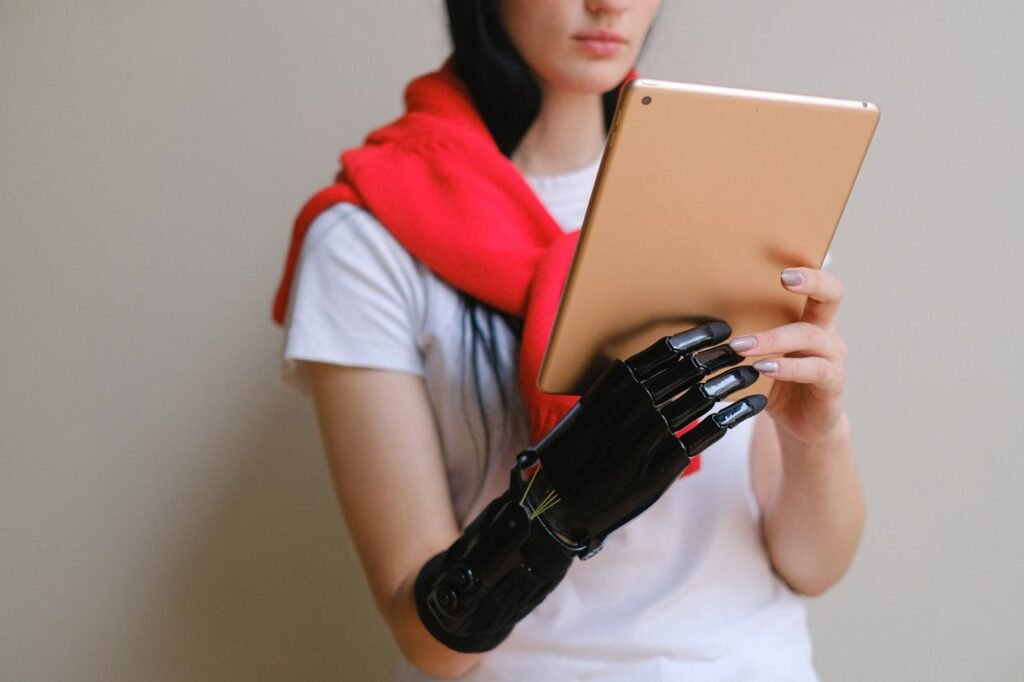
After getting a prosthetic, training is just as important as the device itself.
In Mumbai, many hospitals have in-house physiotherapy departments. These offer everything from gait training to muscle strengthening. However, due to the rush, getting time slots can be difficult unless pre-booked.
You may also need to visit a separate rehab center if your prosthetic provider doesn’t offer training in-house.
Pune rehab centers often give more one-on-one attention. The pace is slower, the environment quieter, and therapists have more time to explain things patiently.
If you’re someone who learns better with hands-on, slow-paced instruction, Pune may be a better fit.
Home-Based Therapy Options
In Mumbai, many patients hire private physiotherapists for home sessions. These can be expensive but are useful for people who can’t travel daily.
In Pune, some clinics now offer hybrid models—clinic-based training for a few days followed by video-guided rehab at home. This model is more affordable and flexible.
RoboBionics also supports Grippy™ users in both cities with video tutorials, live sessions, and call support to help users keep progressing from home.
Mental Health and Adjustment
The emotional side of limb loss often goes unspoken.
In Mumbai, some hospitals do have psychologists or counselors available, but appointments may take time. Unless you are at a high-end clinic, emotional support may not be integrated into your prosthetic journey.
Pune’s smaller setup often means closer communication. Some clinics naturally include mental health check-ins as part of the recovery. This helps users feel heard and supported—not just physically, but emotionally.
Especially for first-time prosthetic users or children, this kind of care can make all the difference.
After-Care and Long-Term Support
Regular Check-Ups and Socket Adjustments
One of the most overlooked parts of prosthetic care is the long-term follow-up.
Over time, your body changes—weight shifts, muscles develop, or the shape of your limb may adjust. This affects how your socket fits.
In Mumbai, top-tier clinics have full after-care departments. But because of high demand, you may need to wait days or weeks for an adjustment. Smaller issues like minor socket discomfort may not get urgent appointments.
In Pune, the approach is more personal. Clinics tend to follow up regularly and are quicker to schedule adjustments. Many users say they feel more “looked after” post-fitting, especially when small tweaks are needed.
If you value faster, more attentive after-care, Pune could be the better choice.
Repairs and Emergency Help
Whether it’s a loose wire, broken joint, or battery issue—prosthetics can face wear and tear.
In Mumbai, clinics usually have better access to spare parts, especially for high-end or imported limbs. But getting a technician to look at your device on short notice can be a challenge.
Some providers have longer queues, and walk-ins aren’t always welcome.
Pune clinics often offer faster turnarounds for basic repairs. Their networks may be smaller, but they’re often more flexible and open to immediate support.
If you’re using a device like Grippy™, both cities offer servicing support via RoboBionics. But in Pune, coordinating appointments or courier pickups tends to be easier and more user-friendly.
Staying Engaged with Your Prosthetic Journey
A good prosthetic journey doesn’t end with the fitting. It grows with you.
In Mumbai, some hospitals hold awareness sessions, skill-building workshops, and peer meetings. These are helpful—but you’ll have to look for them or be connected to a large institution.
In Pune, clinics tend to stay in touch with users more casually. Some have WhatsApp groups for users, where they share updates, tips, and even motivational stories.
The community is smaller—but more connected. And for many, that makes all the difference.
Which City Is Better for Different Types of Users?
For First-Time Users
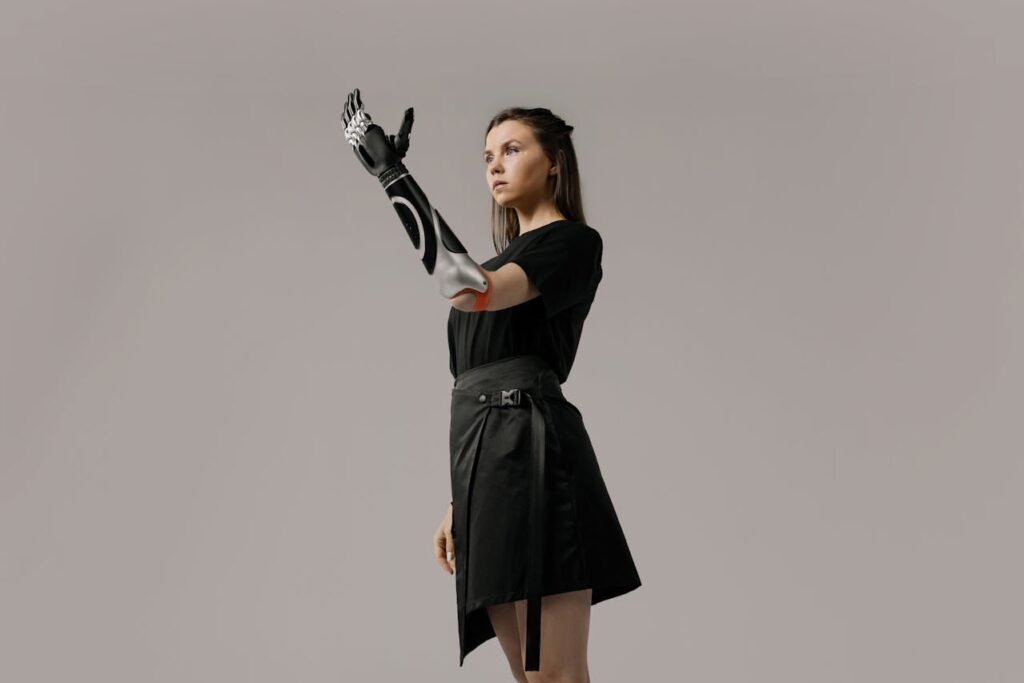
If this is your first time getting a prosthetic, Pune may be easier to navigate.
The learning curve can feel steep—appointments, fittings, rehab, emotional ups and downs. Pune offers a slower pace, fewer crowds, and more direct attention from the clinic staff.
Everything feels more approachable, especially for users who may be nervous or unsure.
For Users Needing High-Tech or Complex Devices
If you need something highly specialized—like a custom-made bionic limb, robotics integration, or imported parts—Mumbai may have the upper hand.
You’ll find more suppliers, experienced technicians, and a wider range of options. But you’ll also need to be patient with scheduling and ready for higher costs.
That said, RoboBionics offers Grippy™ in both cities—so you can access advanced tech without needing to go far from home.
For Budget-Conscious Patients
Pune is clearly the more cost-effective city when it comes to stay, transport, follow-up visits, and even physiotherapy.
If you’re managing costs carefully but still want good service, Pune offers excellent value without compromising on care.
Mumbai can be more expensive across the board—but may make sense if you’re already based in the city or covered by insurance.
Growing the Prosthetic Ecosystem in Mumbai and Pune
The Business Opportunity Behind Prosthetic Care
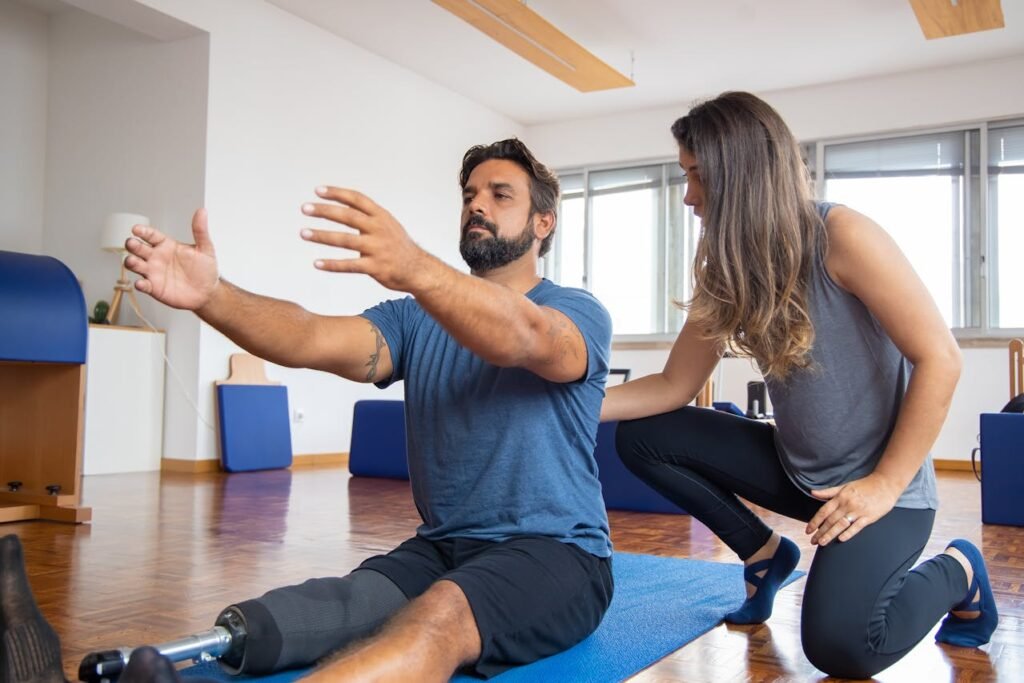
The demand for prosthetics in India is growing rapidly. With an estimated 26 million people living with some form of physical disability, and tens of thousands of amputations each year, prosthetic care is no longer a niche service—it’s becoming a public health need.
For hospitals, physiotherapy clinics, orthopedic centers, and even startup ventures in cities like Mumbai and Pune, this demand presents a significant opportunity. But it’s not just about profits. It’s about building sustainable, impact-driven healthcare services that last.
Adding prosthetic services to your portfolio can bring in long-term value—by turning one-time patients into lifetime relationships through follow-ups, training, upgrades, and support.
For Clinics: Offer End-to-End Care, Not Just a Product
Many prosthetic centers focus only on the fitting. But patients need more than that—they need guidance before, during, and long after the limb is fitted.
This is where businesses can set themselves apart.
If you run a clinic or therapy center in Mumbai or Pune, consider creating a full pathway:
- Pre-assessment and muscle testing
- Fitting with real-time user feedback
- Device training and adaptation support
- Ongoing physiotherapy or video rehab sessions
- After-care scheduling and emergency repair help
This kind of full-circle service not only improves outcomes—it increases trust, referrals, and brand credibility.
Action Step: Build Local Rehab Partnerships
No one clinic can do everything alone. But by partnering with others, you can.
Prosthetic centers in Mumbai can work with independent physiotherapists or mobility trainers in their area. Pune’s rehab clinics can link with prosthetic fitters to create patient-friendly packages.
You don’t need a big budget—just clear communication and mutual goals.
Start by creating a shared calendar or WhatsApp group to manage appointments and feedback. Make referrals smoother and split the workload. Patients win, and both businesses grow.
Expand into Pediatric and Geriatric Segments
Children and senior citizens need very different care when it comes to prosthetics. Their physical needs, emotional needs, and even family support structures are unique.
Yet very few clinics specialize in these two high-need segments.
In Mumbai and Pune, businesses that create tailored services for children or elderly prosthetic users can stand out quickly.
This might include:
- Custom limbs with colorful or skin-friendly materials
- Family education sessions during training
- Home visits for senior users
- Adjustable sockets for growing kids
- Emotional counseling or peer support
By positioning your brand as family-friendly or senior-safe, you create long-term loyalty and word-of-mouth growth.
Training and Capacity Building: A Missed Revenue Stream
Most clinics don’t think of training as a business opportunity. But it is.
By offering workshops for physiotherapists, caregivers, or even local NGOs, you can create awareness and build referral networks.
Host monthly training camps. Offer hands-on demos for young therapists. Partner with engineering colleges to showcase bionic limb tech. These events don’t just educate—they build a presence.
Both Mumbai and Pune have strong academic and startup ecosystems. Tap into them. Turn your prosthetic center into a hub for knowledge and innovation.
Use Content Marketing to Reach Real Families
Families searching for prosthetic care often start online.
But when they search for “best prosthetic in Mumbai” or “affordable bionic hand in Pune,” what do they find?
If your clinic or center isn’t showing up in these results, you’re missing hundreds of potential users each month.
Start with simple, helpful content:
- Blog posts that explain the fitting journey
- Videos showing how a myoelectric limb works
- Testimonials from users and families
- Short explainers in regional languages
Make your website easy to understand. Add real pictures. Include a WhatsApp chat option. Be approachable.
This builds trust even before the first call or visit.
The Case for Adding Grippy™ to Your Offerings
If you’re a clinic or rehab center in either city, consider offering Grippy™ to your patients.
As a proudly Indian-made bionic hand, Grippy™ is:
- Affordable for the average Indian family
- Supported by strong servicing and training networks
- Intuitive and easy for users to learn
- Available on EMI, making it financially accessible
You don’t need to stock inventory. RoboBionics supports partner clinics with demo units, training materials, and servicing guidance.
Whether you’re a small private center or a large hospital chain, adding Grippy™ can position your business as a forward-thinking, care-first provider in a growing market.
Final Thoughts: Choosing What’s Right for You
Weighing the Trade-Offs
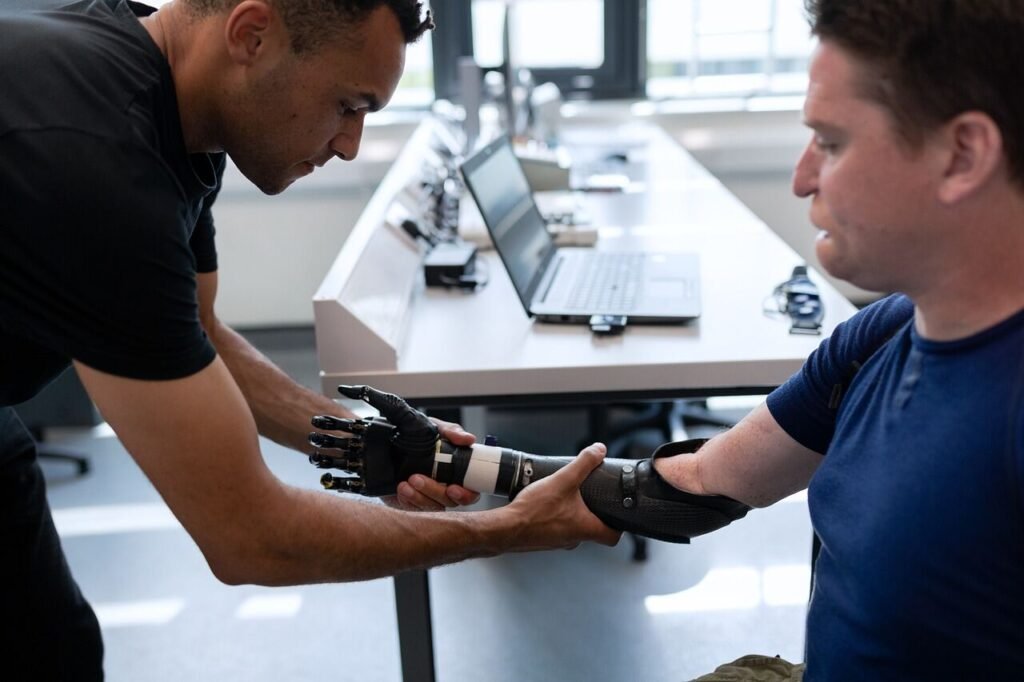
Both Mumbai and Pune have their strengths. The right choice really depends on what matters most to you—speed, comfort, technology, or cost.
Mumbai offers more variety and access to advanced technologies, but it can feel overwhelming. The city is fast-paced, and you’ll need to plan every step, from appointments to stay.
Pune offers calm, simplicity, and a more patient-focused experience. For many, that makes the journey smoother—especially when you’re new to prosthetics or traveling from a smaller town.
There’s no one-size-fits-all answer. But when you know your priorities, the choice becomes clear.
Think Long-Term, Not Just One Visit
Fitting a prosthetic is just the beginning. What really matters is how well it works for you six months, one year, or five years from now.
That’s why after-care, training, and support matter more than just the first appointment.
Ask yourself:
- Will I be able to come back easily for follow-ups?
- How much support will I get after the fitting?
- Who will guide me through rehab, discomfort, or upgrades?
These questions matter even more than the device itself. Because the best prosthetic is the one that feels right—and keeps working right—for years to come.
How RoboBionics Makes This Decision Easier
At RoboBionics, we’ve helped people from both cities—and across India—choose the right prosthetic with care, clarity, and confidence.
Grippy™, our battery-powered bionic hand, is available in both Mumbai and Pune through trusted partners. It’s lightweight, intuitive, and proudly made in India—so you don’t have to spend ₹10 lakh for world-class prosthetics.
We offer:
- Free video consultations
- In-person demos in Mumbai and Pune
- EMI options and support for financial planning
- Step-by-step training and post-fitting care
Whether you choose the pace of Mumbai or the calm of Pune, our team is ready to walk with you every step of the way.
Your Next Step
If you’re still unsure, don’t worry. Start by talking to someone who understands.
Book a free demo today at https://www.robobionics.in/bookdemo
You’ll get a chance to see the device, ask your questions, and decide at your own pace.
Choosing where to go for your prosthetic is a big decision. But you don’t have to make it alone.
We’re here to support you—with care, dignity, and technology that puts your life first.



